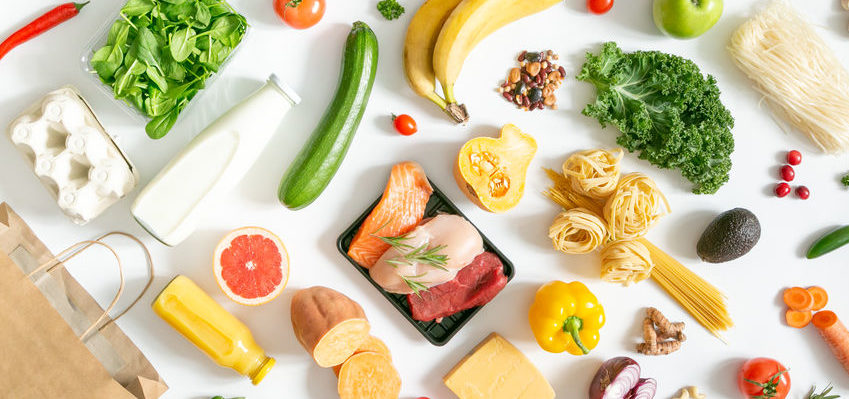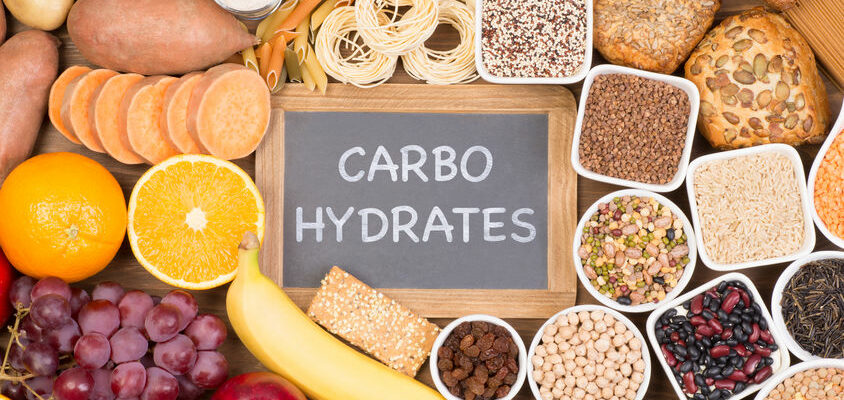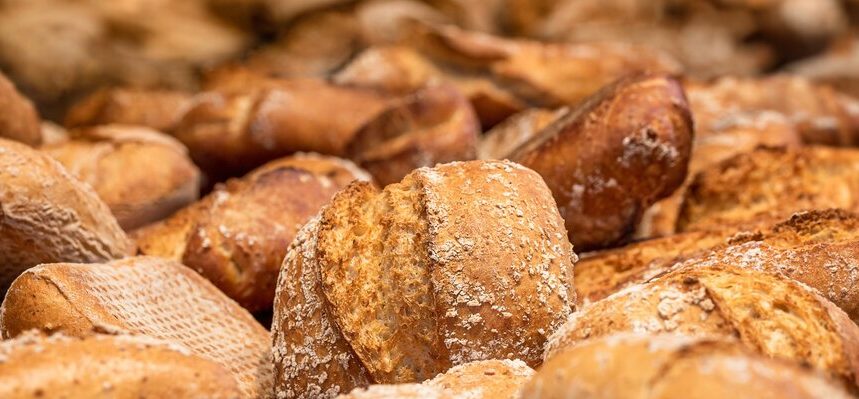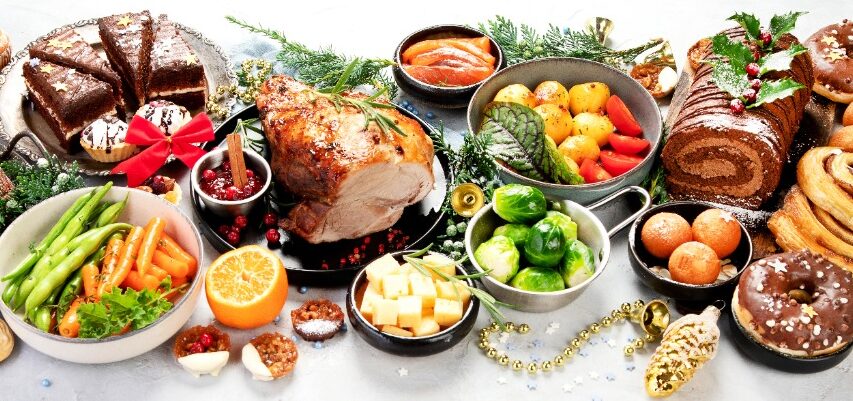
Our bodies need nutrients from food for energy, to rejuvenate and function. Our digestive system breaks down these food ingredients into simple molecules that are easily absorbed. All food ingredients fall under these categories:
- Carbohydrates
- Fats
- Protein
- Vitamins and Minerals
- Minerals
Breaking down food ingredients into smaller molecules
Carbohydrates
Carbohydrates, such as flour, honey, fruit, cereals, and sugar give us energy. Our body breaks down these food ingredients into small glucose molecules. Glucose is then absorbed through the intestine and sent into the bloodstream as a source of fuel for the body. Leftover glucose is stored as fat in cells.
Fiber, such as that naturally occurring in vegetables, whole grains, and legumes is also classified as a carbohydrate. It is a non-digestible carbohydrate that is not broken down by the body to glucose molecules. It may not provide energy but has been determined to have a beneficial effect on human health.
Fats
Fats come in forms of vegetable oil, ghee, butter, nuts, lard, margarine, and shortening. Our body breaks down fat into fatty acids. Our body needs essential fatty acids to grow and produce new cells and hormones. Fatty acids help fat-soluble vitamins move through the body and protect organs from trauma.
Excess fat is stored in the fatty tissues in the body or liver. Some consequences of inadequate fat in our diet are lack of adequate vitamins, dry skin, and hormonal balance issues.
Protein
Protein is found in foods like eggs, whey, gluten, meat, soy, fish, chicken, and beans. Our digestive system breaks down protein foods into amino acids which the small intestine can then carry to the bloodstream. Amino acids are necessary to make and repair new cells as well as fight infections. If we don’t get enough protein in our diet, it’s difficult for our bodies to recover.
Vitamins and Minerals
We get many of the vitamins and minerals our bodies need by choosing food sources where they are found naturally. Vitamins keep bones strong, vision clear and sharp and skin, nails, and hair healthy. They also help the body use energy from food. Minerals are elements that regulate processes in the body. For example, potassium helps nerves and muscles function and iron carry oxygen to cells.
Metabolism comes from Harnessing the Energy of Nutrients
Metabolism refers to the energy-producing reactions that happen in the body. The final product of these reactions is adenosine triphosphate (ATP) which cells break down to release energy.
Carbohydrate Metabolism
Carbohydrates, which the body breaks down into glucose, are the main source of energy for the body. They are the most efficient at producing ATP. Glucose travels to the bloodstream and is metabolized in the cells. The process for glucose metabolism involves glycolysis, krebs cycle and oxidative phosphorylation. The final product of these processes is ATP.
Our bodies do not break down fiber into glucose molecules. Insoluble fiber is non-digestible for energy, soluble fiber can be fermented in the intestine and provide some energy.
Fat Metabolism
Fats are digested into fatty acids, absorbed through the intestine, and taken into the lymphatic system. They are utilized for energy or stored as fat. Metabolism involves lipolysis and beta-oxidation. Some of the products of those reactions can enter the Krebs cycle to produce ATP for energy.
Because fats are not soluble in the blood, they are difficult for the cells to access for energy production. Therefore, glucose is relied upon a molecule to produce ATP quickly and in large amounts. Fats are used when glucose supply is limited.
Protein Metabolism
Proteins are normally digested into amino acids which are recycled by the body to repair and produce new cells. If energy sources are limited and carbohydrate and fat energy stores are depleted, our body’s protein tissue (muscle) will be metabolized for energy. The process of metabolism of protein into energy involves deamination and oxidation of amino acids.
All food ingredients are broken down into simpler molecules and are absorbed by our digestive tract. Some food ingredients like fiber cannot be broken down in our digestive tracts, and are therefore excreted in our bowels. Our bodies naturally process foods, maintain growth, health, and energy. When we eat a variety of foods and maintain balance in our diet, our bodies are efficient in maintaining health.
For more info, check our Youtube!
References
A.T. Da Poian, T. El-Bacha, M.R.M.P Luz; “Nutrient Utilization in Humans: Metabolism Pathways.” Scitable by Nature Education, Cell Origins and Metabolism, 2010, https://www.nature.com/scitable/topicpage/nutrient-utilization-in-humans-metabolism-pathways-14234029/
National Institute of Diabetes and Digestive and Kidney Diseases (NIDDK), “Your Digestive System & How it Works.” December 2017, https://www.niddk.nih.gov/health-information/digestive-diseases/digestive-system-how-it-works






[…] we eat, our body breaks down food into simple molecules that can be easily absorbed. As for carbohydrates, our bodies break them […]